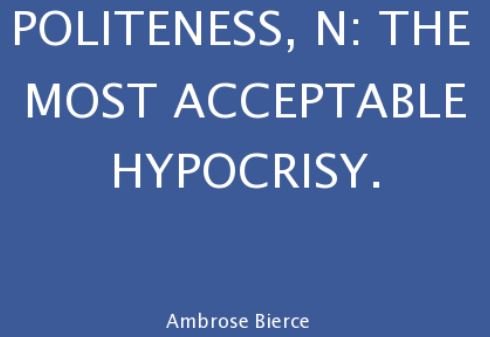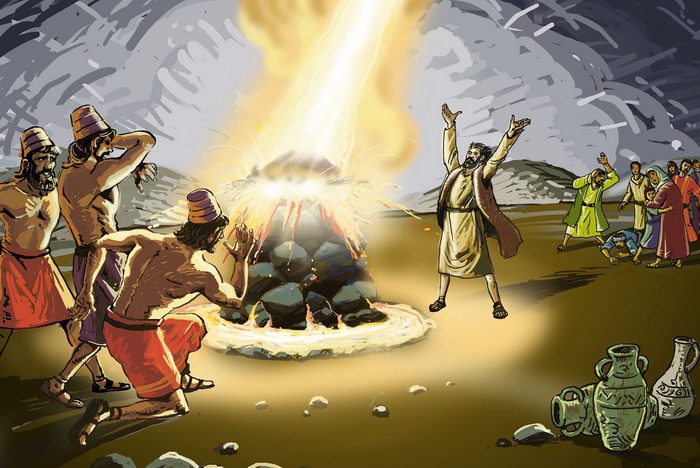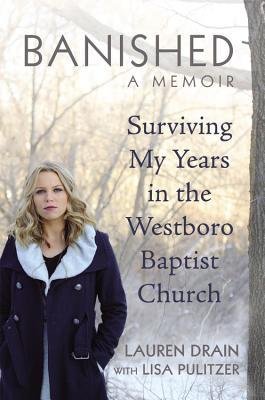
I was part of the Evangelical church for fifty years. Saved at the age of fifteen, baptized by immersion, and called to preach two weeks later, I set out on a path of loving and serving Jesus. At the age of nineteen, I enrolled at Midwestern Baptist College in Pontiac, Michigan to prepare for the work of the ministry. After three years at Midwestern, now married to a beautiful preacher’s daughter, I moved to rural northwest Ohio, beginning a career spanning twenty-five years pastoring Evangelical churches in Ohio, Texas, and Michigan. I pastored churches that were Independent Fundamentalist Baptist (IFB), Southern Baptist, Christian Union, Sovereign Grace Baptist, General Association of Regular Baptist Churches (GARBC), and nondenominational. In addition, I preached for Assembly of God, Reformed Baptist, Free Will Baptist, Baptist Bible Fellowship (BBF), Church of the Nazarene, and sundry other garden variety Evangelical congregations. From 2002-2008, my wife, Polly, and I visited more than one-hundred churches as we sought a church that took the teachings of Christ seriously. Many of these churches self-identified as Evangelical. (Please see But Our Church is DIFFERENT!)
I am almost sixty-six years old. Though I left Christianity fourteen years ago, I have continued to carefully follow the machinations of Evangelical Christianity — the good, the bad, and the ugly. I have been blogging since 2007. I was still a Christian — barely — when I started this blog, but it was not long before Jesus and I had an acrimonious divorce. As a former Evangelical, my goal as a writer has always been to tell my story and help those who have questions and doubts about Christianity. I have no interest in converting people to atheism. That said, I do provide pointed critiques of Evangelical beliefs and practices. While I don’t know everything there is to know about Evangelicalism, I am not an ill-informed, uneducated outsider. And my critics know this. My observations cannot be easily dismissed. So what do Evangelical apologists and zealots do instead? They attack my character, and in some cases, malign my wife, our six adult children, and our thirteen grandchildren. The most hateful people I have ever met are Evangelical Christians — especially Independent Fundamentalist Baptists. Preachers, in particular, are the worst of the worst. Why all the hate? Shit, I am just one man with a blog. Sure, thousands of people read my writing, but I am a nobody. Why not just give me over to Satan for the destruction of the flesh and move on?
I suspect zealots feel threatened or troubled by what I write. I have had several former congregants tell me that they could no longer be friends with me. Why? My writing upset them and made them feel “uneasy” in their skin of faith. Countless other Evangelicals choose a different tack. Unable to refute the message, they attack the messenger. Instead of contemplating the truthfulness of my writing, they attempt to marginalize and discredit me. Over the years, I have highlighted for readers some of the things Evangelicals have said about me. Awful stuff, things I would never, ever say to another human being.
If you are an Evangelical reading my writing for the first time, I said the things above so you would understand that I am not an outsider. I may be an atheist today, but I spent most of my life deeply immersed in the waters of Evangelical Christianity. While I am not a fan of appeals to authority, when it comes to Evangelicalism, I know what I am talking about. This is especially true when it comes to the IFB church movement. Why does my writing resonate with so many people — even Christians? I suspect the main reason is that my experiences match or are similar to theirs. Here I am, an insider, talking out of school, daring to share where the bodies are buried. How dare I, right?
Over the weekend, my friend Clint Heacock posted on Facebook a post by Josiah Meyer about “reforming” Evangelical Christianity. Meyer was asked by a friend, “You seem to be giving up on (Evangelical) Christianity over a few problems. Why not try to reform it?” (I can hear many of you sighing now. 🙂 ) As you will see in a moment, Meyer is an insider; a man with decades of experience with Evangelical Christianity; including academic training in Christian Ministry. Meyer is someone who cannot easily be dismissed. He knows what he knows.
“Why not reform Evangelical Christianity”? Meyer’s friend asked. He replied:
I have tried. And simply, I am done trying. Now, I am speaking my truth and (when necessary) warning people that there are dangers there. Ways in which people can get hurt. Steer clear.
When I was studying for my Doctorate in Christian ministry (yes, I have a shitload of education on religion), one of the courses was on cults. The teacher told us of a phrase he had coined to describe Mormons: “Conservative shift.” ”Every generation,” he warned, “the terminology gets closer to (Evangelical) Christianity. However, the core doctrines do not change.” We learned that one of the characteristics of all sects and cults was deceptive terminology.
Oh, how we missed the opportunity to look in the mirror on that one!
Over the past twenty years or so, I have seen what I thought was a great softening, from the hardline Fundamentalism of the Baby Boomers and before, to a softer, more accepting Evangelicalism of Gen X and Millennials.
But is it better? Is it really?
20 years ago, many people believed in a young earth (everything was created only 6,000 years ago). Today, that number is still on the rise, and I was not able to get a job teaching in Evangelical Canada, in large part because I believed in science on this issue.
20 years ago, it was pretty common to hear that woman is the help-meet, she is created for man, and finds her true place in the home. I used to make a big distinction between “patriarchal” and “complementarian” teaching. But what is the difference? Evangelicals still believe that women are “equal in standing, but have different roles.” In other words, they are born to serve. Nothing has changed.
20 years ago, we didn’t hear much about LGBTQ. We did hear, however, that there was one way to be male, one way to be female. Homosexuality was a taboo and those who practiced it were going to Hell. Today, it is still not talked about, but when it is, it is said that, “practicing homosexuals” will be punished. Aka, it’s still a sin, you’re just not sinning if you stay celibate. In other words, no change.
20 years ago, it was pretty common for churches to be terrified about the end of the world, the “Mark of the Beast,” the rapture, and the antichrist. Things like cell phones and credit cards were identified as potentially being “the mark of the beast” while every political leader from Hitler down to Obama have been called the antichrist by somebody. Nowadays? Do I need to say it? Vaccines are the mark of the beast, and Fauci is (to some at least) the Antichrist. Good lord.
20 years ago, it was common to pull away from society, and educate kids in private Christian schools. The main reason was to “protect us from evolution and other sinful ideas.” Today, this has blossomed into a multi-million dollar homeschooling industry, where kids can be sheltered not only from contemporary science, but also from “woke” ideas like gender equality, racial reconciliation, environmentalism, and social justice.
A product of such an education, it was not until I was 38 that I really heard, really understood the concept of “consent.” One of many things somehow missed in my privileged education.
20 years ago, it was starting to get somewhat common for Christians to create a subculture of herbal remedies, favorite recipes, and cooking groups. It was cheerful, charming, yummy, and harmless. Then it became the MLM empires that burned through our social groups. And with Covid? Sigh. Many went off the deep end into Qanon conspiracy theories, or (laughably, but not funny) herbal remedies to cure Covid.
20 years ago, it was pretty common to be concerned about outlawing abortion. But this was before the Evangelical vote became (in my memory, at least) completely fused with the conservative/republican vote. These things have changed, but not for the better, with Christians voting for the likes of Trump, and staging riots and coup attempts at our capitals.
Try to change it? Good God, I have tried. And I have failed.
The problems were too big for me or maybe, they were never mine to carry at all. Will others take up the call? Will change happen? Is it possible?
Here’s another question. Has anything changed? Really changed?
Or has only the terminology changed; becoming more friendly; more diplomatic; deceitful; “seeker sensitive?”
This burden is, at any rate, no longer mine to carry.
Meyer hits the proverbial nail on the head. Has Evangelical Christianity “changed”? If you only look at the periphery of Evangelicalism, then, sure, they have changed. I am a Baby Boomer. The Evangelical church of my youth is very different from what I see today. However, it’s the window dressing, the facade that has changed, and not the core Evangelical beliefs and practices. And that’s Meyer’s point. Look beyond the worship teams, overhead projectors, and hip preachers. What do you find? The same dogma and extremism that’s always been central to Evangelical faith and practice. And as Meyer poignantly makes clear, these things have actually become more shrill and extreme. Evangelicals have largely embraced anti-culture ideology, viewing their unsaved, non-Republican neighbors as enemies. How else do we explain the fact that almost eighty percent of voting white Evangelicals voted for Donald Trump — not once, but twice? How else do we explain the fact that many Evangelicals plan to vote for Trump again in 2024, and those who don’t plan to vote for Ron DeSantis — a man arguably more dangerous than the twice-impeached ex-president. How else do we explain the fact that Evangelicals were the dominant religious force behind the January 6th Insurrection? Evangelicals (and conservative Catholics) are behind the uptick in book bans and attempts to ban teaching critical race theory in public schools. These same people want to reintroduce teacher-led prayer and Bible reading in public schools, ban any support for LGBTQ students, and teach creationism in science classrooms. Politically, Evangelicals are anti-abortion, anti-same-sex marriage, anti-premarital sex, anti-gay, anti-immigrant, and anti-separation of church and state. Is it any wonder that Evangelical Christianity is one of the most hated sects in America?
I am sure some Evangelical readers are screaming at their computer or smartphone screens: NOT ME! MY CHURCH IS DIFFERENT! MY PASTOR IS DIFFERENT! It goes without saying that this post does not describe ALL Evangelicals. I am sure Meyer would say the same. Evangelicalism is a big tent, giving space to everyone from Evangelicals-in-name-only to hardcore Fundamentalists. That said, much like a man who always seems to date blondes, Evangelicalism has a type. The late Fred Phelps and Albert Mohler are Baptist preachers. The former was known for his vitriol and homophobia. The latter is a smooth-talking Southern Baptist; a well-spoken media darling. Yet, when you peel back their outward appearance, what you find is that both men have similar beliefs. The only difference between the two is style and presentation.
Many Evangelicals distance themselves from the extremists within the sect, thinking that they can somehow rescue Evangelicalism from itself. However, when pressed about their beliefs, you will often find the same theology as that of ardent Fundamentalists. When someone tells me that they are not like the Evangelicals I critique, I typically ask them if they believe in the exclusivity of the Christian gospel; that all people are saved or lost; that unsaved people will go to Hell when they die? Their answers to these questions will tell me everything I need to know about their flavor of Evangelicalism. If believers don’t believe in the exclusivity of the gospel, the necessity of personal salvation, and the eternal punishment (and reward) of the lost, are they, in any meaningful way, Evangelical?
Those on the progressive end of the Evangelical spectrum often think that Evangelicalism can be reformed; that if Evangelicals will abandon their social Fundamentalist beliefs, reinterpret the Bible to fit modern sensibilities, and not be dicks Evangelicalism can be “saved.” However, it is fair to ask that once Christianity is made more palatable and friendly, is it still Evangelical? I think not. If someone like me ends up in Hell after death, the rest of your theology doesn’t matter. But, Bruce. I believe in annihilation. God will punish you for a time and then turn you into a pile of ashes. Surely, that’s better than eternal punishment! Ain’t God awesome? Uh, no.
Can Evangelical Christianity be “reformed”? The obvious answer is no. To paraphrase an old gospel song, “Evangelicals have gone too far to turn back now.” I see no path of reformation or redemption. Once Evangelicals traded their souls for a bowl of pottage; abandoning personal piety and salvation for raw political power, there’s no going back. Does anyone seriously believe that Evangelicals will return to the privacy of their houses of worship to await the second coming of Jesus? Not a chance.
Evangelicals will eventually destroy themselves from within. The problem, of course, is that they could take the rest of us with them. Have you been paying attention to what is going on in the House of Representatives or what Republican supermajorities are doing at the state level, including in my home state of Ohio? Scary stuff. What is the common connection between these extremists? Drum roll, please. Evangelical Christianity; men and women with theocratic objectives. We truly live in dangerous times.
Instead of talking about reforming Evangelical Christianity, the American people would be better served if we discuss ways to limit Evangelical control of the levers of power. Whether this can be accomplished remains to be seen. I live in rural Ohio. Evangelicals rule the roost, both at the state and local levels. There’s little non-Evangelicals can do to stop them. Seventy percent of locals vote Republican; Democrats have no chance of unseating Evangelical officeholders. I do what I can, but I often feel I am pissing into a hurricane.
Meyer encourages people to steer clear of Evangelicalism. I take it one step further. I say RUN! FLEE FOR YOUR LIFE! Evangelical beliefs and practices can and do cause psychological harm, and, at times, physical harm. Evangelical Christianity is not a benign religion, and it is time for the media and bloggers to say so. For people inclined to believe in God, I suggest you seek out kinder, gentler forms of Christianity.
Thanks to Josiah Meyer for provoking me unto good works. 🙂 Meyer blogs at Josiah Meyer: Spirituality, Philosophy, History, and the occasional Profanity.
Bruce Gerencser, 66, lives in rural Northwest Ohio with his wife of 45 years. He and his wife have six grown children and thirteen grandchildren. Bruce pastored Evangelical churches for twenty-five years in Ohio, Texas, and Michigan. Bruce left the ministry in 2005, and in 2008 he left Christianity. Bruce is now a humanist and an atheist.
Connect with me on social media:
Your comments are welcome and appreciated. All first-time comments are moderated. Please read the commenting rules before commenting.
You can email Bruce via the Contact Form.




